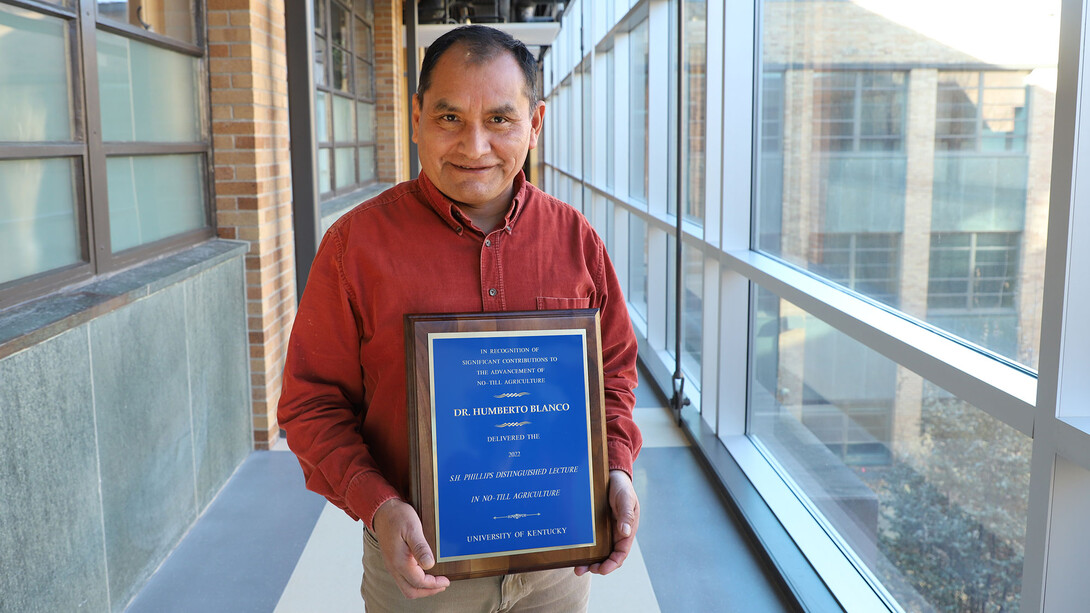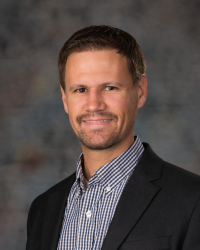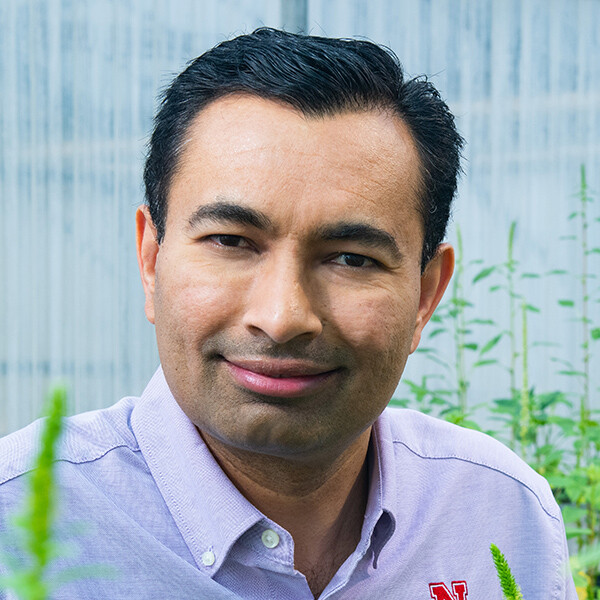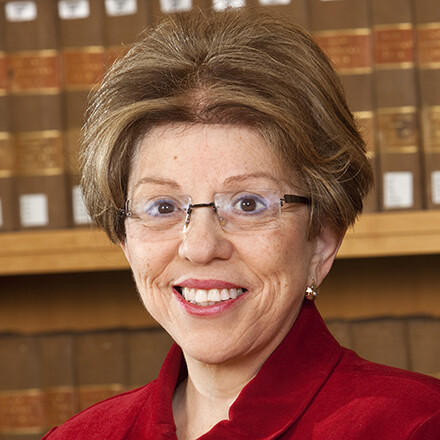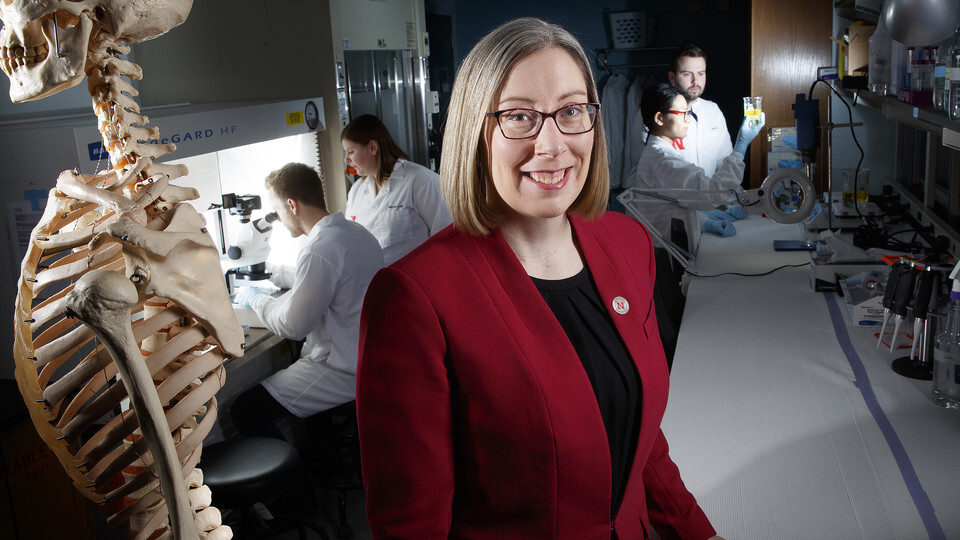
Recent achievements for the campus community were earned by Sasitharan Balasubramaniam, Humberto Blanco, Justin Bradley, LeAnne Bugay, Sheri Fritz, Alexis Goeman, Amit Jhala, Stevan Z. Knezevic, Dawn Lindsley, Nick Murphy, Massimiliano Pierobon, Jo Potuto, Dave Remund, Sarah Rosenberg, Jeff Salem, Kara Stone, Emily Stoner, Jay Storz, Clayton Thomas, Rebecca Wachs and the College of Business.
Honors
Sasitharan Balasubramaniam and Massimiliano Pierobon, associate professors of computing, served as guest editors on a recently published special issue of IEEE Journal on Selected Areas in Communications. The issue, “Edge-Based Wireless Communications Technologies to Counter Communicable Infectious Diseases,” focused on the impact of challenges caused by the COVID-19 pandemic and how technological advancements can play a role in solving and obtaining new knowledge of communicable disease pandemics.
Humberto Blanco, a professor of soil management and soil physics in agronomy and horticulture, was honored with the Shirley H. Phillips Distinguished Lecture in No-Till Agriculture award by the University of Kentucky on Nov. 18 in Lexington. The award is given annually to individuals with exceptional contributions toward advancing the science and practice of no-tillage agriculture. He was one of six nominees for the honor.
Justin Bradley, associate professor of computing, was elected to the American Institute of Aeronautics and Astronautics’ Class of 2023 Associate Fellows. The grade of associate fellow recognizes individuals who have accomplished or been in charge of important engineering or scientific work, who have done original work of outstanding merit, or who have otherwise made outstanding contributions to the arts, sciences or technology of aeronautics or astronautics. To be selected as an AIAA associate fellow, an individual must be an AIAA senior member in good standing, with at least 12 years of professional experience, and be recommended by three current Associate Fellows.
Amit Jhala, associate professor and extension weed management specialist in agronomy and horticulture, has been awarded a Superior Paper (Information Technology, Sensors, and Control System) from the American Society of Agricultural and Biological Engineers for the paper “Evaluation of Soil Moisture Sensing Technologies in Silt Loam and Loamy Sand Soils: Assessment of Performance, Temperature Sensitivity, and Site- and Sensor-Specific Calibration Functions.” Each ASABE technical community selects up to 5% of the papers published by their community for paper awards.
Stevan Z. Knezevic, professor of integrated weed management in agronomy and horticulture, was named a 2022 fellow of the North Central Weed Science Society. The award — the highest available from the NCWSS — was presented Dec. 7 in St. Louis at the society’s 77th annual meeting. Only individuals who have made outstanding contributions to weed science are considered for the yearly award.
Dawn Lindsley, Extension educator, and Clayton Thomas, an ag education major, were honored at the ACTE annual national conference. Lindsley served as the national ACTE fellowship coordinator for the new professionals’ cohort as well as being a CliftonStrengths coach for both cohorts in 2022. Thomas participated in the Advancing Career and Technical Educators Symposium. He was selected as one of 20 from across the nation.
Dave Remund, assistant professor of advertising, and students Nick Murphy, Sarah Rosenberg, Emily Stoner, Jeff Salem, Alexis Goeman, LeAnne Bugay and Kara Stone, will take part in the 2023 Bateman Case Study Competition. Bateman is a national competition for public relations students, sponsored by the Public Relations Student Society of America. The competition gives students an opportunity to apply their classroom education and internship experiences to create and implement a full public relations campaign.
Jo Potuto, professor in the College of Law, received the 2023 Association of American Law Schools Section on Law and Sports Award. The award honors an individual who has made substantial and distinguished contributions to scholarship, teaching or service in the area of the law relating to sports.
An international team of biologists led by Jay Storz, professor of biological sciences, received a $2.25 million National Institutes of Health grant to investigate how Andean mice living at extremely high altitudes have adapted to survive under conditions of low oxygen availability (hypoxia). The research is part of a collaboration with researchers at Universidad Austral de Chile (Valdivia, Chile), Universidad de Chile (Santiago, Chile), Universidad Mayor de San Andrés (La Paz, Bolivia), McMaster University, and University of Montana.
Rebecca Wachs, assistant professor and graduate chair in biological systems engineering, received the 2022 Junior Faculty Excellence in Research Award. Presented by the university’s Agricultural Research Division, this award recognizes excellence in research and outstanding professional contributions.
The College of Business’ online MBA program is ranked No. 15 nationally in Poets&Quants’ 2023 survey of the Best Online MBA Programs in the United States. The program jumped 12 spots since 2021 and is No. 3 among Big Ten institutions. Poets&Quants is an online publication for business education news. This year marks the sixth annual online MBA ranking, based upon programs’ admissions standards, academic experience and career support. Earlier this year, the MBA program ranked No. 1 best value in the U.S., No. 3 best career services in the world and No. 9 best online MBA program in the world by Financial Times. The program additionally ranked No. 8 in the world by the Princeton Review and No. 31 in the nation by U.S. News & World Report.
Publications
- Sheri Fritz, George Holmes professor in the Department of Earth and Atmospheric Sciences and the School of Biological Sciences, is co-author of the paper “Holocene variations in Lake Titicaca water level and their implications for sociopolitical developments in the central Andes,” which was published in the journal, Proceedings of the National Academy of Sciences, on Jan. 3. The international team of researchers reconstructed the lake-level history of Lake Titicaca in Bolivia/Peru over the last 6,000 years from the geochemistry of the lake sediments. This history was used to provide context for various socio-political changes in the basin as reported by archeologists.
